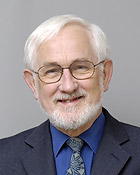Pye, M.: Difference between revisions
No edit summary |
m (Text replacement - "{{Footer}}" to "") |
||
| Line 29: | Line 29: | ||
== Publications == | == Publications == | ||
His publications include Skilful Means: A Concept in Mahayana Buddhism and The Buddha. | His publications include Skilful Means: A Concept in Mahayana Buddhism and The Buddha. | ||
Latest revision as of 14:40, 5 June 2024
| PersonType | Category:Authors of English Works Category:Professors |
|---|---|
| FirstName / namefirst | Michael |
| LastName / namelast | Pye |
| MainNamePhon | Michael Pye |
| SortName | Pye, Michael |
| bio | Michael Pye was born in 1939 in England, and studied Modern Languages and Theology at Cambridge, England (1958-61) as an Open Scholar of Clare College. He then spent five years in Japan before holding lecturing posts in Religious Studies at Lancaster and Leeds (where he was also awarded a Ph.D). Since 1982 he has been Professor of Religious Studies at Marburg University, Germany, interleaved with a three year period as Professor of Religious Studies at Lancaster University, England. Shortly after retirement in Marburg (2004) he took up a three year visiting professorship at Ōtani University, Kyōto, followed by one extra year for research only. From 1995 to 2000 he was President of the International Association for the History of Religions. He received an honorary doctorate from the Faculty of Theology of Helsinki University and is a foreign member of the Societas Scientiarum Fennica. Apart from a specialised interest in East Asian Buddhism and contemporary Japanese religions he has travelled widely and has interests in broad issues of religion and society in the modern world. (Source Accessed June 7, 2021) |
| IsInGyatsa | No |
| Other wikis |
If the page does not yet exist on the remote wiki, you can paste the tag |
Full Name
Michael Pye
Affiliation
Professor in the Department of Religious Studies, Lancaster University.
Education
Other Information
Publications
His publications include Skilful Means: A Concept in Mahayana Buddhism and The Buddha.

